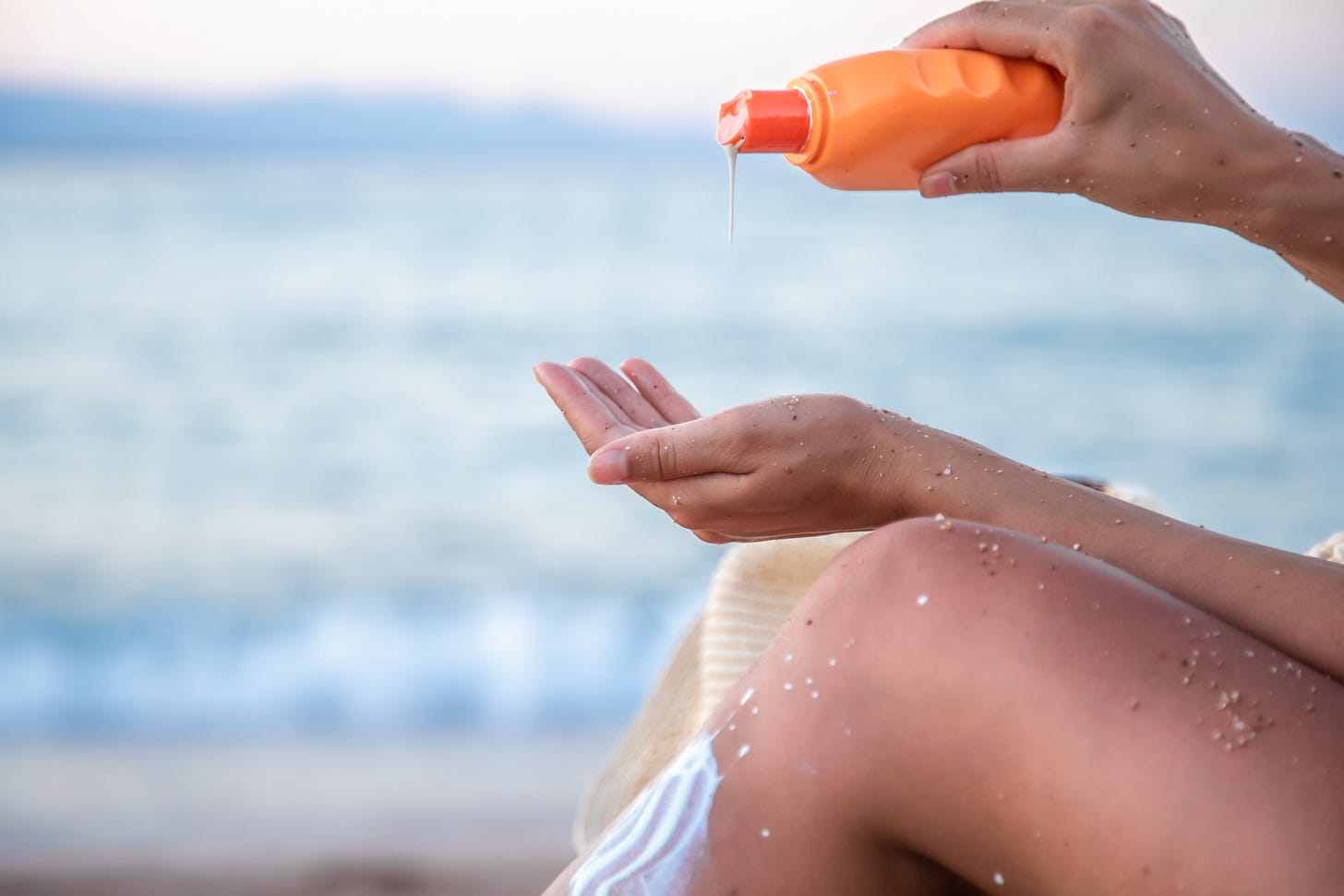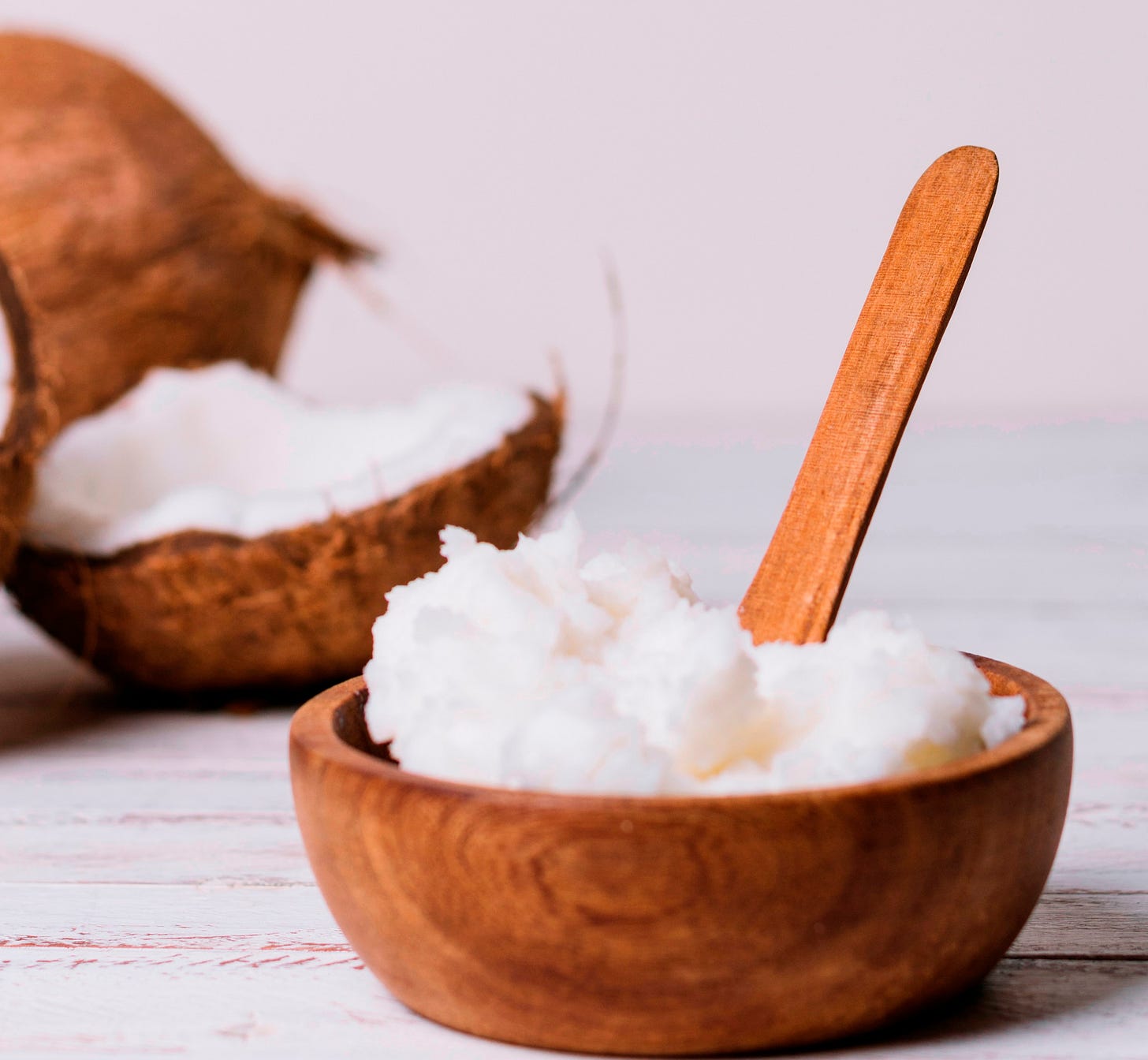Eat Your Sunscreen: A Holistic Approach to Sun Protection
A Safer, Smarter Way to Protect Your Skin This Summer
Summer is right around the corner, and for many of us, that means longer days outdoors, more time in the sun—and a renewed focus on protecting our skin.
But here's something most people don't realize: despite the rise in sunscreen usage and awareness campaigns over the past few decades, skin cancer rates have continued to climb.
Even more surprising? Some research suggests that conventional sunscreens—while effective at blocking UV rays—may actually contribute to skin damage and systemic toxicity over time.
Let’s break this down and explore a more holistic, nourishing approach to sun protection—one that starts with what’s on your plate and continues with what you put on your skin.
Rethinking Sun Safety: Hidden Dangers of Mainstream Sunscreens
Mainstream sunscreens are everywhere—on drugstore shelves, in commercials, at the beach. The truth is, many conventional sunscreens contain ingredients that do more harm than good. While they block UV rays, synthetic chemicals like oxybenzone, octinoxate, and homosalate have been linked to:
Hormone disruption
Allergic reactions
Reproductive toxicity
Marine ecosystem damage
Oxybenzone, for instance, has been detected in breast milk and shown to mimic estrogen, while octinoxate may interfere with thyroid function. Beyond their toxic effects, these ingredients reflect an outdated philosophy: block the sun at all costs—even if it means covering your skin with chemical agents daily.
The Problem with Chemical-Based Sun Care
Your skin is your body’s largest organ, and it absorbs much of what you put on it. Relying solely on chemical sunscreens can undermine your skin's natural defenses and contribute to long-term health concerns.
The Case for 'Eating Your Sunscreen'
What if the key to sun protection wasn’t just about slathering something on your body—but also nourishing it from the inside out?
Turns out, the nutrients we eat can dramatically influence our skin’s natural ability to defend against UV damage. Our bodies are brilliantly designed to adapt and protect—but they need the right tools to do so. Nutrients like antioxidants and healthy fats support your skin’s ability to repair and protect itself.
Key Nutrients for Natural Sun Protection
Antioxidants (found in berries, leafy greens, seaweed, cacao, and colorful vegetables) combat oxidative stress—a major contributor to premature aging and UV-induced skin damage.
Healthy fats (omega-3s from fish, flaxseed, and walnuts, and saturated fats from coconut oil and butter) strengthen the skin barrier, helping it retain moisture and resist sunburn.
Eating antioxidant-rich, skin-supportive foods can build your body’s resilience against UV damage naturally—before you even step outside.
Natural Sunscreen Alternatives: What to Put On Your Skin
The phrase "eat your sunscreen" doesn’t end with food. Since your skin absorbs topical products, choosing non-toxic sun care is just as important.
Ask yourself: Would I eat what’s in my sunscreen?
If not, consider switching to natural sun protection ingredients, such as:
Red raspberry seed oil
Carrot seed oil
Coconut oil
Avocado oil
Non-nano zinc oxide
These offer broad-spectrum UV protection, hydrate the skin, and avoid the hormone-disrupting chemicals found in mainstream sunscreens. Plus, they’re safer for marine life and coral reefs.
Look for natural skincare brands that use purposeful, nutrient-rich formulations.
A Whole-Body Sun Care Strategy
This summer, instead of grabbing the same drugstore sunscreen with the same old chemicals, try a different approach. Embrace a whole-body, integrative strategy for sun protection:
Eat nutrient-dense, colorful, antioxidant-rich meals
Consider supplementing with a quality antioxidant (like astaxanthin, vitamin C, or polyphenols)
Support your skin with healthy fats and hydrating foods
Avoid products with endocrine-disrupting ingredients
Use nourishing, non-toxic skincare with natural UV-blocking oils
Stay smart with sun exposure—get morning light, seek shade during peak hours, and let your skin build a natural tolerance over time
Your skin isn’t just a passive shield—it’s an intelligent, living organ that can adapt and thrive when you give it what it needs. And with so many environmental toxins already working against us, we owe it to ourselves to make safer, smarter choices—especially during the sunniest months.
Final Thoughts: Nourish, Don’t Just Block
By embracing holistic sun care, you reduce your exposure to harmful chemicals, improve your skin's natural defenses, and support overall health. This summer, shift your perspective:
✅ Eat your sunscreen
✅ Use natural, non-toxic skin products
✅ Support your skin from the inside out—and the outside in
The sun isn’t your enemy — toxins are. Choose smarter, safer sun care strategies and let your skin shine :)
So tell us, would you eat your sunscreen?
Do you already use natural products? If not, which ones from our above list would you be willing to try?
Related Articles;
Synthetic Toxins
In today’s fast-paced world, synthetic toxins are pretty much everywhere—whether we realize it or not.











I surf and use vertra generally
Do you happen I have a recipe for warm weather appropriate sunscreen( I live in Hawaii where coconut oil is always liquid :)
Thank you
For many years I would use coconut oil🥥 The past two years I use Avocado oil because I learned it has a higher spf.